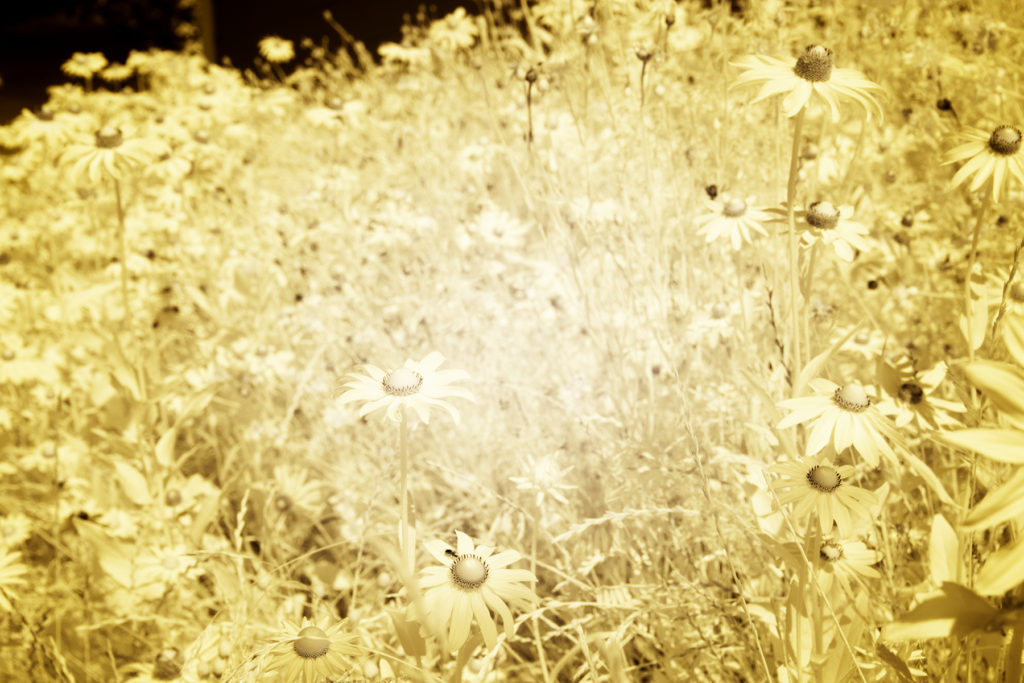Okay, I have a digital camera converted to capture infrared light. I’m ready to go out and shoot pictures, right? My camera is ready–Is my lens?
Light is bent when it passes through transparent materials such as air, water, and glass. However, different colors (wavelengths of light) may not bend at the same degree so water droplets and prisms make rainbows by spreading out the mix of frequencies of light at different degrees. A lens bends this composite of colored light towards its focal plane, our camera sensor or film. It is shaped and coated with materials that eliminate the spreading out by different colors of light.

A premium Sigma 17mm-50mm f/2.8 lens at f16 produces a hot spot which I have exaggerated with a curves adjustment.

A Nikon 18mm-55mm f/3.5-5.6 kit lens at f/8 did not produce a hot spot. I have applied a similar curves adjustment which would have revealed an appreciable hot spot if it had been there.
My subject is in focus–what’s the big deal about infrared light? Camera lenses focus the visible spectrum. Some lenses also bring infrared to the same focus as visible light. Others don’t do as well and may produce a hot spot on the image.
Compared to pro lenses, a kit lens may not be able to produce as sharp an image in the visible spectrum, but may focus infrared frequencies more accurately. Look here to read a list of some lenses which have been tested for infrared photography.